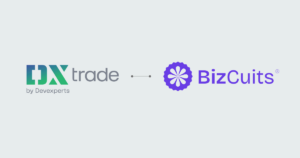Dark pool-related violations lead to $12m in penalties for Citigroup subsidiaries
The proceedings taken by the SEC stem from the conduct of the respondents in connection with a “crossing network” or “dark pool” called Citi Match.

The United States Securities and Exchange Commission has earlier today published an Order about administrative and cease-and-desist proceedings instituted against Citigroup Global Markets, Inc. (CGMI), a subsidiary of Citigroup Financial Products, Inc. and an indirect wholly owned subsidiary of Citigroup Inc (NYSE:C), and Citi Order Routing and Execution, LLC, an indirect wholly owned subsidiary of Citigroup. In anticipation of the institution of these proceedings, the respondents have submitted offers of settlement, and the Commission has determined to accept these offers.
This proceeding stems from the conduct of the companies in connection with a “crossing network” or “dark pool” called Citi Match. From at least December 2011 through June 2014, CGMI was responsible for the marketing and sales of Citi Match and CORE was responsible for its day-to-day operation.
The Order states that , during the relevant period, CGMI made material misstatements and omissions to institutional users concerning:
- (a) the types of market participants that were allowed to place orders in Citi Match and
- (b) Citi Match’s practice of routing orders to other trading venues for execution.
The SEC says that CGMI represented that Citi Match was an “exclusive” and “premium” trading venue, which limited the types of market participants that could enter orders in the dark pool. Specifically, CGMI represented to users through marketing materials, questionnaire responses and other communications that it did not allow high-frequency traders (HFT) to enter orders in Citi Match. This representation is seen as material by the regulator because many market participants, particularly institutional firms, sought to avoid trading against HFT during the relevant period.
CGMI charged users a relatively high commission rate for Citi Match executions – generally targeted to be a penny per share for executions of orders placed using a direct connection into Citi Match – based in part on the representation that Citi Match did not allow HFT.
In the face of CGMI’s claims that HFT firms were not allowed to enter orders in Citi Match, two proprietary trading firms that can reasonably be considered high frequency trading firms were among Citi Match’s top users for certain portions of the relevant period and represented a significant portion of Citi Match’s total trading activity.
Furthermore, CGMI failed to adequately disclose to all users that orders sent to Citi Match could be routed to, and executed in, various external venues. This practice was known as “external routing,” and was the default setting for Citi Match users. Through external routing, CORE took orders that were resting on Citi Match and simultaneously placed them on one or more outside venues, under the market participant identifier (MPID) for CORE’s market maker, using CORE’s routing systems.
The external venues typically charged significantly less for trade executions than Citi Match and many did not share the premium characteristics that CGMI described Citi Match as having. When Citi Match orders were routed out to Citi Cross or another external venue, CGMI charged its users the Citi Match commission rate for all executions.
None of the marketing materials, technical specifications or other documents that CGMI widely distributed to Citi Match users during the relevant period mentioned external routing, even though some of these materials purported to explain Citi Match’s key features.
Finally, CORE met the definition of an exchange as a result of its operation of Citi Match. CORE did not operate in a manner that would have excluded it from the definition of exchange. Accordingly, CORE was required to register as a national securities exchange or operate pursuant to an exemption such as the exemption allowing for the operation of an ATS. CORE did neither. Hence, CORE therefore violated Section 5 of the Exchange Act.
The Order directs CGMI to pay disgorgement of $4,718,784.59 and prejudgment interest of $718,690.47 to the Securities and Exchange Commission. Also, CGMI shall pay a civil money penalty in the amount of $6,500,000. CORE is ordered to pay a civil money penalty in the amount of $1 million.









